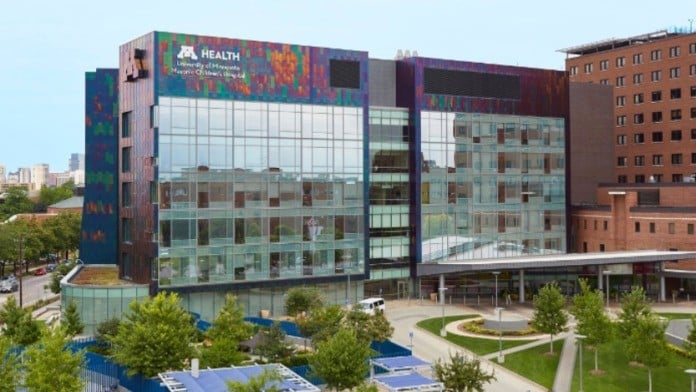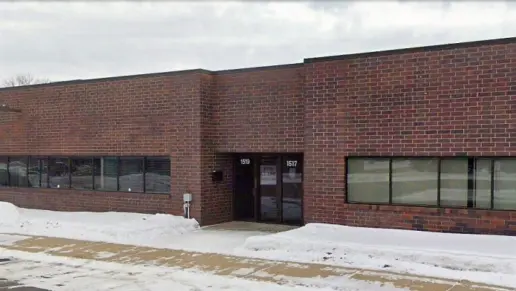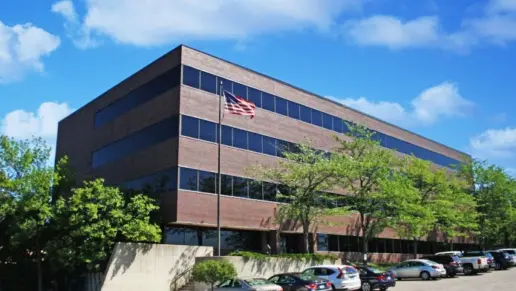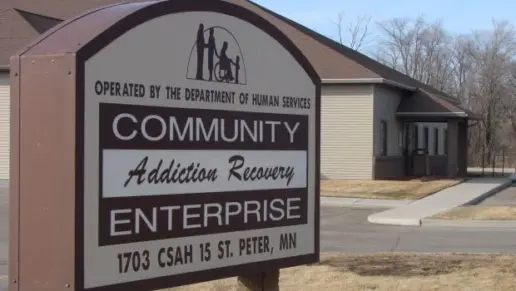One of my close friends went here and her whole life turned around! Thank you so much for saving and improving lives and wonderful staff! I highly recommend this rehab to everyone who needs care that works! Thank you!!
About M Health Fairview University of Minnesota Medical Center – West Bank East Building
M Health Fairview University of Minnesota Medical Center’s West Bank East Building treats teens who have substance use disorders. They also have inpatient behavioral services for kids under 12. They provide culturally-sensitive approaches for their programs. You’ll find ‘em in Minneapolis, Minnesota.
They offer assistance to 12 to 19 year olds with drug related and mental health problems who don’t need 24 hour supervision. An assessment is a critical first step in determining how to best care for each patient. Their treatment teams receive information not only from the patient’s records but from family members and support systems.
In addition to phone and video visits, same day visits are available. Their intensive outpatient treatment consists of 3.5 hours of group therapy and 2 hours of academic instruction each weekday.
Therapy includes relapse prevention, psychoeducation, and dialectical behavioral approaches (DBT). Along with weekly family therapy sessions with their loved ones, patients also receive individual therapy. Patients can also see the onsite psychiatric provider to manage their meds. They’ll discuss the appropriate dosage so they can stay healthy without becoming too dependent.
They provide continuing care after a patient has completed their primary treatment program. They’ll want to assess your recovery and make sure you don’t relapse. This structured curriculum may include individual, group, and family therapy.
Involving families is a crucial component of their program. Family members are invited to participate in the evaluation and treatment procedures in order to assist their kids in improving their mental health. They have education workshops to help you realize the negative consequences that substance use has had on their lives. Throughout the course of treatment, they’ll encourage you to support open communication.
Rehab Score
Gallery

Location
Other Forms of Payment
Medicaid is a state based program that helps lower-income individuals and families pay for healthcare. Medicaid covers addiction treatment so those enrolled can use their coverage to pay for rehab. When a program accepts Medicaid the client often pays very little or nothing out of their own pocket.
Private insurance refers to any kind of healthcare coverage that isn't from the state or federal government. This includes individual and family plans offered by an employer or purchased from the Insurance Marketplace. Every plan will have different requirements and out of pocket costs so be sure to get the full details before you start treatment.
Self-pay involves paying for treatment out of your own pocket. You can use savings or credit, get a personal loan, or receive help from family and friends to fund your treatment. If you don't have insurance or your insurance plan doesn't cover a specific program, self-pay can help ensure you still get the care you need.
Medicare is a federal program that provides health insurance for those 65 and older. It also serves people under 65 with chronic and disabling health challenges. To use Medicare for addiction treatment you need to find a program that accepts Medicare and is in network with your plan. Out of pocket costs and preauthorization requirements vary, so always check with your provider.
Military members, veterans, and eligible dependents have access to specific insurance programs that help them get the care they need. TRICARE and VA insurance can help you access low cost or no cost addiction and mental health treatment. Programs that accept military insurance often have targeted treatment focused on the unique challenges military members, veterans, and their families face.
Addiction Treatments
Levels of Care
Treatments
The goal of treatment for alcoholism is abstinence. Those with poor social support, poor motivation, or psychiatric disorders tend to relapse within a few years of treatment. For these people, success is measured by longer periods of abstinence, reduced use of alcohol, better health, and improved social functioning. Recovery and Maintenance are usually based on 12 step programs and AA meetings.
Drug addiction is defined as an inability to stop using drugs even though it causes negative consequences in your life. Drug rehab in Minnesota provides treatment for drug addiction in a variety of settings including inpatient treatment and outpatient treatment.
Many of those suffering from addiction also suffer from mental or emotional illnesses like schizophrenia, bipolar disorder, depression, or anxiety disorders. Rehab and other substance abuse facilities treating those with a dual diagnosis or co-occurring disorder administer psychiatric treatment to address the person's mental health issue in addition to drug and alcohol rehabilitation.
Opioid rehabs specialize in supporting those recovering from opioid addiction. They treat those suffering from addiction to illegal opioids like heroin, as well as prescription drugs like oxycodone. These centers typically combine both physical as well as mental and emotional support to help stop addiction. Physical support often includes medical detox and subsequent medical support (including medication), and mental support includes in-depth therapy to address the underlying causes of addiction.
Substance rehabs focus on helping individuals recover from substance abuse, including alcohol and drug addiction (both illegal and prescription drugs). They often include the opportunity to engage in both individual as well as group therapy.
Programs


Clinical Services
Group therapy is any therapeutic work that happens in a group (not one-on-one). There are a number of different group therapy modalities, including support groups, experiential therapy, psycho-education, and more. Group therapy involves treatment as well as processing interaction between group members.
Contact Information
2450 Riverside Avenue
Minneapolis MN, 55454


